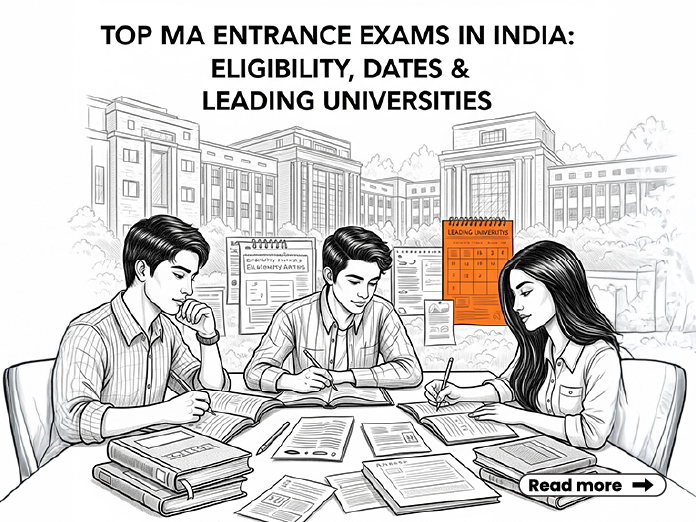Technology is advancing at an unprecedented pace, driving profound changes across every aspect of our lives. From breakthroughs in artificial intelligence to leaps in quantum computing, the digital revolution is reshaping how we work, learn, communicate, and even what we eat. As we step into 2025, these innovations promise to reach new milestones, opening fresh opportunities and challenges.
India stands at the forefront of this transformation. With its booming digital ecosystem and a robust focus on innovation, the country is poised not just to embrace these emerging technologies but to lead their global adoption. In this blog, we delve into the most promising technologies shaping 2025 and examine their far-reaching impact on careers, industries, and education.
For businesses and individuals alike, staying informed about the latest trends in information technology is key to remaining competitive in a rapidly evolving world. Join us as we explore the technologies that will define the future and the crucial trends to watch closely.
What Are Emerging Technologies?
Emerging technologies refer to innovations that are still developing but have the potential to create major changes. These are not yet widely used but are gaining attention across sectors.
Unlike traditional or legacy systems, emerging technologies use modern tools like AI, blockchain, or biotechnology. They promise faster, smarter, and more sustainable solutions.
Emerging Technologies Examples:
- Generative AI tools
- Internet of Things IoT0
- Quantum Computing
- Biotechnology
- Virtual Reality (VR) & Augmented Reality (AR)
- Robotics
This list of emerging technologies continues to grow and evolve. They are shaping the future and emerging technologies landscape, offering new ways to live and work that were once science fiction.
Top Emerging Technologies to Watch in 2025
Here are the latest emerging technologies that are set to grow in 2025:
| Technology | Description & Applications |
| Artificial Intelligence (AI) | AI tools like chatbots, copilots, and generative models speed up decision-making, writing, and coding. |
| Quantum Computing | Offers unmatched computing power for research, cryptography, and simulations. |
| 5G and Beyond | Enables ultra-fast internet, smart cities, and the growth of the Internet of Things (IoT). |
| Blockchain and Web3 | Ensures data privacy and security using smart contracts and decentralised apps. |
| Extended Reality (AR/VR/MR) | Powers immersive training, virtual campuses, and entertainment platforms. |
| Edge Computing | Processes data closer to users for faster, real-time insights—perfect for autonomous tech. |
| Biotechnology & Gene Editing | Tools like CRISPR help in drug development, food innovation, and personalised healthcare. |
| Sustainable Tech | Includes green energy, carbon capture, and sustainable product design. |
This list of emerging technologies highlights the innovations shaping 2025. These future emerging technologies are changing the rules across multiple sectors.
Emerging Trends in Information and Communication Technology
The ICT sector is seeing fast-paced innovation. Here are the top emerging trends in information technology and emerging trends in computer and information technology to watch:
- AI-augmented development: AI tools help developers write better code faster.
- Cloud-native infrastructure: Businesses are shifting to scalable, secure cloud systems.
- Cybersecurity mesh: A new security model that protects data wherever it exists.
- Hyperautomation: Using AI and robotics to automate complex tasks across industries.
- Real-time analytics: Businesses use live data to make quicker, smarter decisions.
These emerging IT technologies improve productivity and decision-making in every domain.
Emerging Technologies in Computer Science
The world of computer science is evolving. Some notable emerging technologies in computer science include:
- AI in coding: Tools like GitHub Copilot assist in writing and debugging code.
- Neural networks: Used for tasks like speech recognition, image analysis, and translation.
- Generative design: AI-driven software creates complex engineering designs automatically.
- Autonomous systems: Self-driving cars and robots are becoming more reliable.
These advances support innovation and emerging technologies in education, healthcare, and transportation. They also represent the forefront of emerging trends in computer and information technology.
Emerging Technologies in India
India is taking bold steps to adopt these emerging technologies:
- National AI Strategy: India is investing in AI research and startups.
- Quantum initiatives: The government launched a mission to promote quantum technology research.
- Startup ecosystem: Sectors like electric mobility, agritech, and edtech are booming.
- Digital India and Make in India: These campaigns encourage digital access and local innovation.
As a result, emerging technologies in India are not just imported, but they’re being built locally.
Emerging Trends in Educational Technology
Education is going digital with powerful tools that personalise learning. Key emerging trends in educational technology include:
- AI-driven learning tools: Platforms suggest lessons based on a student’s progress.
- AR/VR classrooms: Students explore historical events or anatomy using virtual reality.
- Learning analytics: Educators track real-time performance and improve teaching strategies.
- Smart campuses: IoT devices manage lighting, safety, and class scheduling.
LPU leads in adopting these emerging technologies in education, offering smart classrooms and immersive learning environments to prepare students for the future.
Innovations in Food Science and Agriculture
Farming and food production are being revolutionised by innovative food science & emerging technologies:
- Lab-grown meat: Reduces environmental impact and meets food demand.
- Precision agriculture: Uses drones, sensors, and AI to improve crop yield.
- Sustainable packaging: Keeps food safe while reducing plastic waste.
- Smart food logistics: Ensures timely delivery using data and automation.
These changes support food security and sustainability, critical goals for the future.
Why These Trends Matter for Businesses and Careers
Businesses need to keep up with these emerging trends and technologies to stay relevant. Whether in tech, healthcare, education, or agriculture, professionals must build future-ready skills.
In 2025 and beyond, there will be high demand for:
- AI engineers
- Data scientists
- Cybersecurity experts
- Biotech researchers
- AR/VR designers
- Agritech consultants
Courses at Lovely Professional University (LPU) are aligned with industry trends. From computer science to biotechnology and business, students learn using the latest tools and labs. LPU’s partnerships with global tech leaders give students hands-on experience with emerging technologies 2025.
Conclusion:
The future is here, and it’s driven by technology. In 2025, new emerging technologies will reshape industries, economies, and daily life. Students and professionals must stay updated, agile, and curious.
Lovely Professional University equips learners to succeed in this fast-changing world. Explore tech-driven courses, research opportunities, and global certifications to become part of the next innovation wave.
FAQs
Q1: What are the most promising emerging technologies in 2025?
AI, quantum computing, biotechnology, and blockchain are among the most promising.
Q2: Which industries will benefit most from these new technologies?
Healthcare, education, agriculture, IT, and finance will see the biggest impact.
Q3: How are emerging technologies being implemented in India?
Through national missions, startup funding, and Digital India initiatives.
Q4: What is the role of AI in emerging technology trends?
AI boosts automation, personalisation, and smart decision-making across sectors.
Q5: Are these trends relevant for students and professionals outside IT?
Yes. These trends affect healthcare, education, agriculture, business, and more.




![Career Paths After B.Sc. Information Technology [Lateral Entry] Career Paths after B.Sc. Information Technology [Lateral Entry]](https://www.lpu.in/blog/wp-content/uploads/2026/01/Career-Paths-after-B.Sc_.-Information-Technology-Lateral-Entry-218x150.png)









